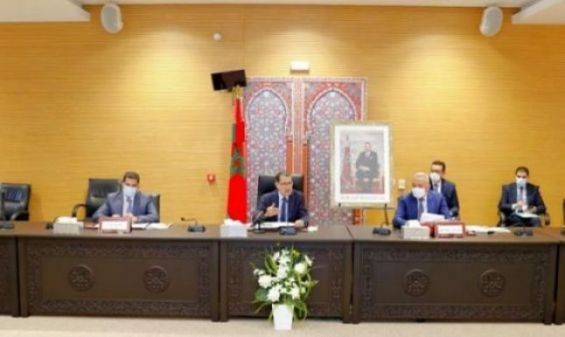The national business environment policy covering the period from 2021 to 2025 was adopted by the National Business Environment Committee (CNEA), Wednesday in Rabat, under the chairmanship of the head of government, Saadeddine El Othmani.
This policy includes 33 reform projects connected to easing and simplifying administrative procedures and improving the legal and regulatory framework for business, payment deadlines and access to financing, infrastructure and public procurement.
It also focuses on the qualification of human capital, the strengthening of support mechanisms for businesses and the integration of the informal sector.
On this occasion, the head of government underlined that this policy will help develop an «integrated strategic vision which intends to bring together favorable conditions for investors so that they can contribute to the creation of wealth in Morocco».
He explained that this policy is based on three pillars : improving the structural conditions of the business environment, simplifying companies' access to the necessary resources and strengthening transparency, inclusion and cooperation between the public and private sectors.
The implementation of this policy will be flexible, as its content will be updated when necessary, he said, adding that it will be based on governance mechanisms bringing together stakeholders from the public and private sectors.
Addressing the challenges of the private sector
For their part, the president of the General Confederation of Moroccan Enterprises (CGEM), the Wali of Bank al-Maghrib, the Professional Group of Moroccan Banks (GPBM) and the Federation of Chambers of Industry, Commerce and Services highlighted the importance of the major reform projects launched by the kingdom in this area.
They also underlined the need to look at the challenges facing the private sector, during this health, economic and social crisis that Morocco is going through, particularly through the support of SMEs, the acceleration of the pace of reforms related to financing, human capital, public procurement and the integration of the informal sector.
In this sense, President of CGEM Chakib Alj called for a rapid implementation of this national policy. «Now that our priorities are defined, let's step up the pace of implementation. Our country has innumerable assets, which make it very attractive in terms of investment. These gains must be quickly consolidated through reforms», he added.
He also noted that Morocco must not miss this turning point to position itself in the global value chains which are being redefined, recalling that «to invest, a business leader needs to feel supported and confident».
«They also need a clear legal and regulatory framework that is attractive and favorable to innovation, an efficient one-stop shop, trained human capital, quality basic infrastructure and services and a simplified access to financing», he stressed.





 chargement...
chargement...












